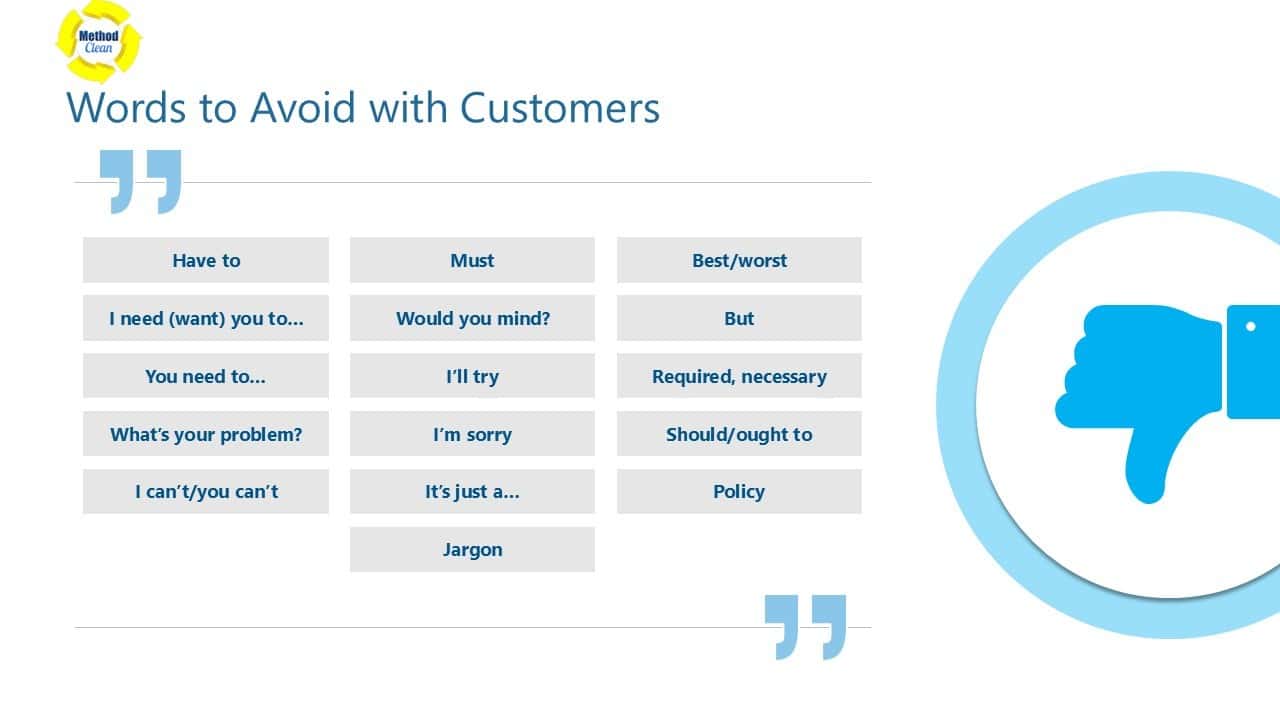SEO Language Mistakes Cleaning Businesses Should Avoid
💬 Introduction
SEO isn’t just about stuffing keywords into your cleaning service pages. Today, tone, clarity, and how trustworthy your business sounds are just as important—both to search engines and to your potential customers.
What you say on your website matters just as much as what you say on the phone. In fact, many of the same phrases that weaken a cold call can quietly sabotage your website performance, too. If your tone feels dismissive, vague, or overly formal, it can turn both prospects and Google away.
📞 Want better cold call results too? Read our guide on phrases to avoid in your cleaning service cold call script .
In this post, we’ll focus on how language affects your web content—highlighting common SEO-killing words and what to say instead to sound more helpful, credible, and engaging.
4 SEO Language Mistake Categories for Cleaning Companies
- Tone Mistakes
- Overusing commanding or negative phrases like “you must” or “we require.”
- Using apologetic or uncertain phrases like “we’ll try” or “it’s just.”
- Language & Clarity Mistakes
- Using industry jargon that customers don’t search for.
- Using vague benefit claims like “top-notch service” without evidence.
- Consistency Mistakes
- Shifting tone from casual to overly formal across your pages.
- Lack of internal voice standards or style guide.
- SEO Impact Mistakes
- Keyword stuffing or writing for bots instead of humans.
- Low engagement due to unclear, cold, or overly complex language.
❌ Mistake: Overusing Commanding or Negative Words

Common phrases like “You must,” “You need to,” or “We require...” may feel firm or clear, but they can actually come off as cold, rigid, or even condescending—especially online.
This tone repels both human visitors and search engines. Customers want to feel like they're being guided—not instructed. And Google prefers content that demonstrates helpfulness and clarity.
🔍 SEO Risk: A demanding tone can increase bounce rate, decrease engagement, and ultimately push your rankings down.
- “Let’s get you scheduled for a time that works best.”
- “We recommend giving 24 hours' notice for any changes.”
- “Here’s how we can help make this smooth for you.”
🧱 Mistake: Hiding Behind ‘Policy’ or Formal Language
- “To keep things running smoothly for everyone, we kindly ask for 24 hours’ notice.”
- “Here’s how we make scheduling easy and flexible.”
- “Let’s work together to make this as seamless as possible.”
🤔 Mistake: Using Apologies or Uncertainty
- “Here’s what we can do to make this easier.”
- “Let’s confirm your preferred time.”
- “We’ll have this ready by tomorrow afternoon.”
🎭 Mistake: Failing to Align Tone Across Pages
- Your brand’s voice and tone—friendly, expert, reassuring, etc.
- Examples of words/phrases to use or avoid (e.g., “let’s” vs. “you must”).
- Consistent formatting and style for service, FAQ, and about pages.
🧩 Mistake: Using Industry Jargon and Fluff
- Instead of “sanitization protocols,” try “disinfecting high-touch areas like doorknobs and counters.”
- Replace “solutions” with “services” or “plans.”
- Use terms like “office cleaning,” “carpet stain removal,” or “weekly service” that align with actual searches.
SEO FAQs for Cleaning Service Websites
What SEO mistakes are most common for cleaning websites?
How does tone affect SEO?
Should we avoid certain phrases in our service descriptions?
How do I check if my content uses the right keywords?
Is a consistent tone really that important?
Conclusion
✍️ Writing matters—not just for rankings, but for reputation.
When your cleaning business speaks clearly and confidently online, you earn more than SEO points—you build trust. That means longer visits, stronger engagement, and more clients reaching out.
✅ Clean, conversational content leads to better rankings, more conversions, and happier clients.
📋 Get a Free Website Review NowReady to Optimize Your Website Language and SEO?
Let’s improve your search rankings, increase conversions, and make your cleaning business sound as good as it performs.
